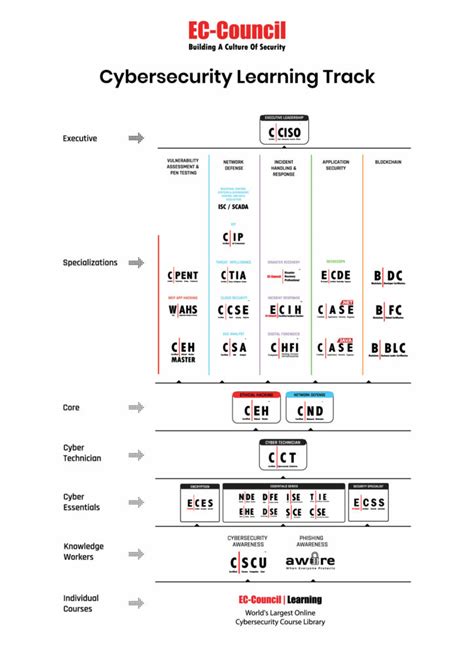Digital Forensics Career

Digital forensics has emerged as a critical component of modern law enforcement and corporate security, involving the collection, analysis, and presentation of digital evidence to investigate cybercrimes, intellectual property theft, and other forms of digital malfeasance. As technology advances and the reliance on digital systems grows, so does the demand for professionals with expertise in digital forensics. A career in this field requires a unique blend of technical skills, legal knowledge, and analytical thinking, making it an exciting and challenging profession for those interested in the intersection of technology and law.
The evolution of digital forensics as a distinct career path is closely tied to the rapid proliferation of digital technologies and the increasing sophistication of cyber threats. From the early days of computer forensics, which focused primarily on analyzing computer hard drives for evidence, digital forensics has expanded to encompass a broad range of digital media and devices, including smartphones, cloud storage, and network traffic. This expansion has created a wide array of job opportunities for digital forensics professionals, from working in law enforcement agencies to private sector companies and consultancies.
Key Points
- Digital forensics involves the collection, analysis, and presentation of digital evidence to investigate cybercrimes and other forms of digital malfeasance.
- A career in digital forensics requires a blend of technical skills, legal knowledge, and analytical thinking.
- The demand for digital forensics professionals is growing due to the increasing reliance on digital systems and the sophistication of cyber threats.
- Digital forensics encompasses a broad range of digital media and devices, including smartphones, cloud storage, and network traffic.
- Job opportunities for digital forensics professionals exist in law enforcement agencies, private sector companies, and consultancies.
Nature of Digital Forensics Work

Digital forensics professionals engage in a variety of tasks, including collecting and analyzing digital evidence, conducting forensic examinations of digital devices, and presenting findings in legal proceedings. The work requires a deep understanding of digital technologies, including operating systems, file systems, and network protocols, as well as familiarity with legal principles related to digital evidence and cybercrime. Given the sensitive nature of the work, digital forensics professionals must also adhere to strict ethical standards and follow established protocols to ensure the integrity of evidence and the confidentiality of investigations.
Technical Skills and Knowledge
To succeed in digital forensics, professionals need to possess a range of technical skills, including proficiency in forensic software tools such as EnCase, FTK, and Volatility, as well as programming skills in languages like Python, C++, and SQL. Knowledge of digital forensics methodologies and frameworks, such as the NIST Cybersecurity Framework, is also essential. Moreover, staying updated with the latest technologies and threats is crucial, as the field of digital forensics is rapidly evolving. This includes understanding emerging trends like cloud computing, artificial intelligence, and the Internet of Things (IoT), and how these technologies impact digital forensic investigations.
| Technical Skill | Description |
|---|---|
| Forensic Software Tools | EnCase, FTK, Volatility |
| Programming Languages | Python, C++, SQL |
| Digital Forensics Methodologies | NIST Cybersecurity Framework |
| Emerging Trends | Cloud Computing, Artificial Intelligence, IoT |

Career Paths and Opportunities

Digital forensics professionals can pursue a variety of career paths, depending on their interests, skills, and levels of experience. Entry-level positions may involve working as digital forensics analysts or examiners, where the primary responsibility is to collect, analyze, and document digital evidence. With experience, professionals can move into senior roles, such as lead examiner or manager of a digital forensics lab, overseeing teams and complex investigations. Other career paths include working as consultants, providing digital forensics services to clients across various sectors, or specializing in specific areas like incident response or cybersecurity.
Education and Training
Pursuing a career in digital forensics typically requires a foundation in computer science, cybersecurity, or a related field. Many professionals in the field hold bachelor’s or master’s degrees, and some may also obtain certifications like the Certified Digital Forensics Examiner (CDFE) or the Certified Cyber Forensics Professional (CCFP) to demonstrate their expertise. Continuous learning is essential due to the rapidly evolving nature of technology and cyber threats, making ongoing professional development and training a critical component of a successful career in digital forensics.
What is the primary role of a digital forensics professional?
+The primary role of a digital forensics professional is to collect, analyze, and present digital evidence to investigate cybercrimes and other forms of digital malfeasance.
What technical skills are required for a career in digital forensics?
+Technical skills required include proficiency in forensic software tools, programming languages, and knowledge of digital forensics methodologies and frameworks.
How does one stay updated with the latest trends and technologies in digital forensics?
+Staying updated involves continuous learning through professional development courses, attending industry conferences, and participating in online forums and communities related to digital forensics.
In conclusion, a career in digital forensics offers a challenging and rewarding path for those interested in the intersection of technology and law. With the increasing demand for digital forensics professionals and the continuous evolution of the field, there has never been a more exciting time to embark on this career path. By combining technical skills, legal knowledge, and analytical thinking, digital forensics professionals play a critical role in investigating cybercrimes and ensuring digital security, making their work indispensable in the modern digital landscape.



